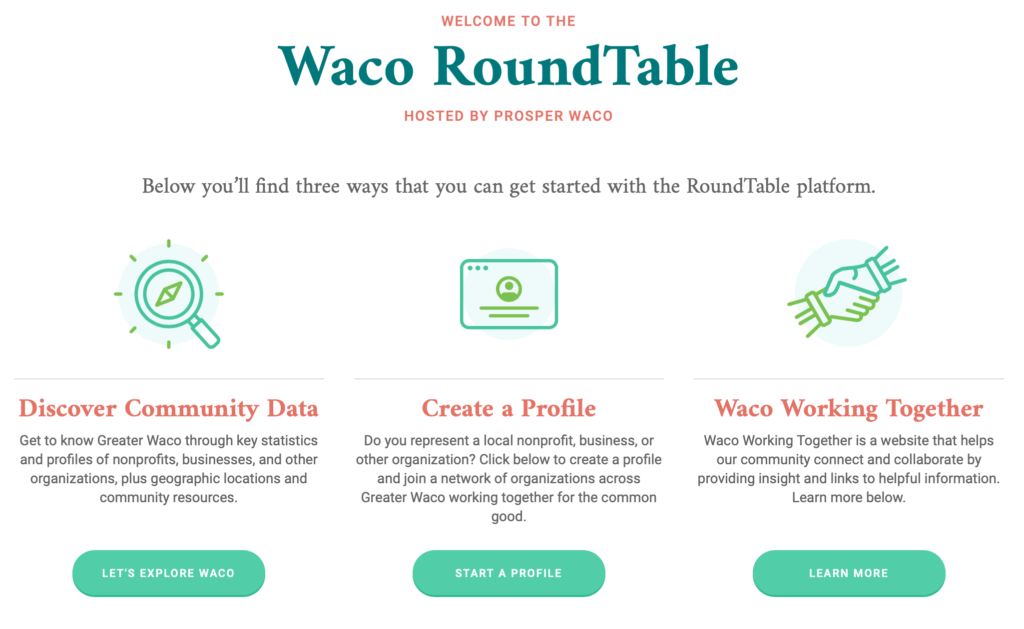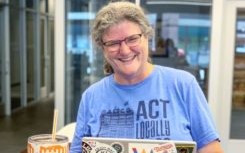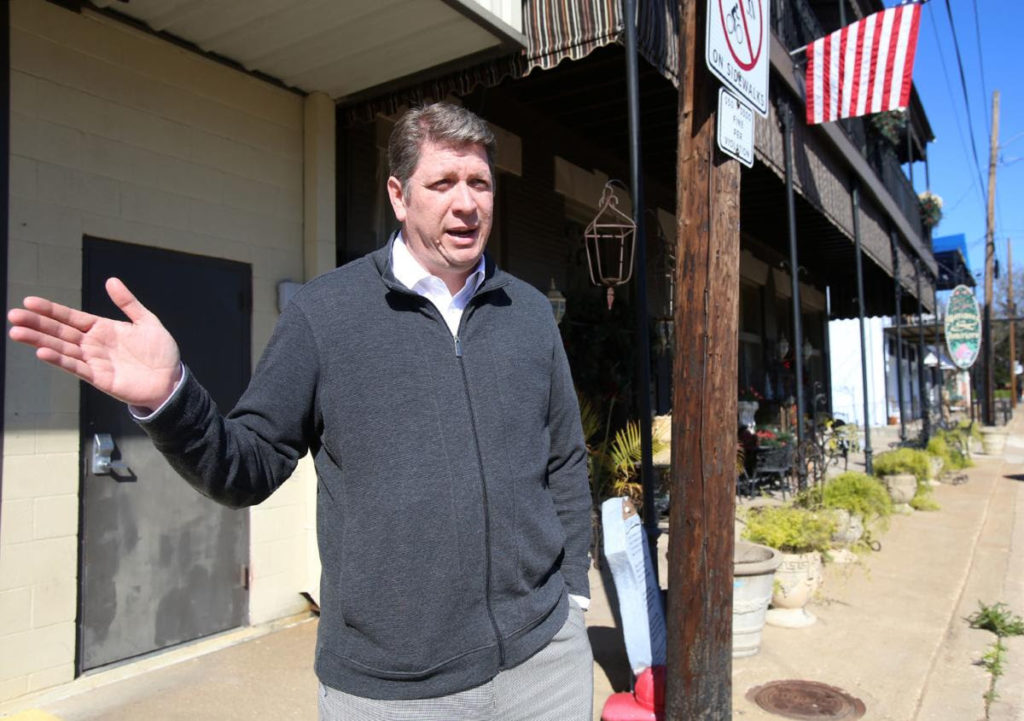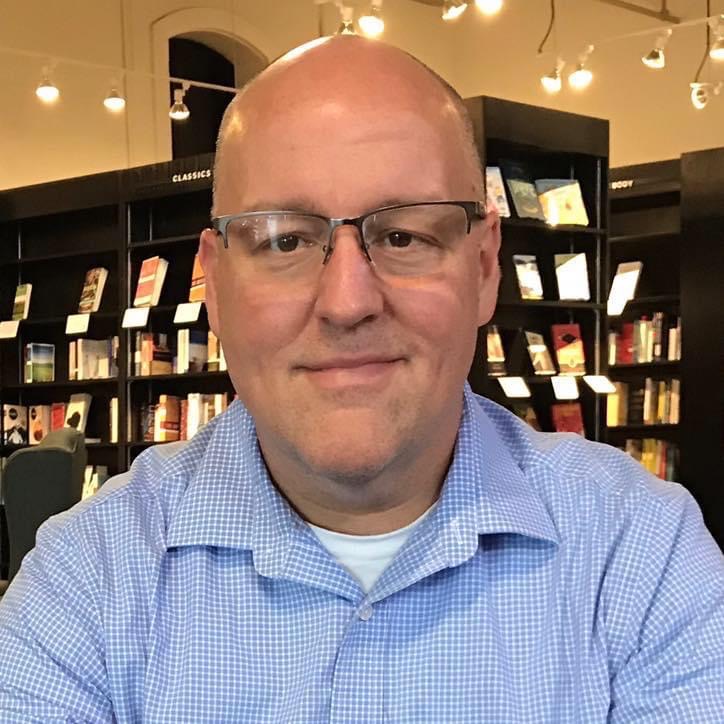By Jo Welter, on behalf of the Community Race Relations Coalition
In response to the request for community input regarding the choice of a new police chief for Waco, the board of the Community Race Relations Coalition (CRRC) offers the following.
We are grateful to live in a city with courageous leaders who have decided to begin again with the search for a new police chief after considering input from some in the community. This was a difficult and wise decision and we commend them for this and for now asking for wider input from Waco citizens.
In a July 1 Waco Trib piece by reporter Kristin Hoppa, Waco Police Detective Ken Reeves was quoted as saying, “I think we just want to find the right chief that will be there for our officers.”
In a June 6 guest column in the Waco Trib, attorney Mark Osler wrote, “The great challenge going forward is the same as it has been for decades: to create a police force that truly protects and serves all of the people.”
Our first suggestion is that we go with Osler’s suggestion and look for someone who will serve and protect everyone – officers and citizens as well.
We would love to see a chief who is a person of color or a woman, with no regard for religion or gender preference. It is important for us all to see people from groups that are underrepresented in positions of authority and importance, and this will serve us in many ways. The other qualities we would like to see considered in looking for a new chief include:
- Truthfulness and openness, including indications that he/she would give thoughtful consideration to all possibilities in any situation
- A genuine interest in improving equity and creating justice for all citizens in our community
- An understanding of what Black Lives Matter really means
- An interest and commitment to learning and promoting de-escalation techniques in interaction for use between officers and citizens
- A striving to do what is morally right, standing up against political interests and police union and civil service issues when called for
- An attitude of compassion and understanding toward the citizens they serve and protect, treating citizens as allies, not as “others”
- Openness to ideas like a citizens’ board to oversee disciplinary decisions
- Positive attitude toward cultural sensitivity learning for officers and for youth involved in police programs
We believe that specific policies against forms of restraint and treatment of offenders are certainly necessary.
An issue that might be even more important here in Waco is the need to purposefully work to eliminate the “us against them” attitude that is so pervasive in our society, including between the police department and citizens. This attitude has become so ingrained in us that we are often not even conscious of the ways in which it affects our behavior.
We are drawing from a pool of candidates that, like all of us, is influenced by the “us against them” attitude. The police in many communities have circled the wagons around themselves in self-protection. It makes it difficult to find the perfect new police chief for Waco.
We support and appreciate these efforts in finding the right chief for Waco. We look forward to the future here in our beloved Waco.

Jo Welter has lived in the Waco area for 29 years and has been an active participant in the Community Race Relations Coalition (CRRC) for 20+ years. She currently serves as chair of the CRRC board.
The Act Locally Waco blog publishes posts with a connection to these aspirations for Waco. If you are interested in writing for the Act Locally Waco Blog, please email [email protected]for more information.
By Liya Scott
Remember the name “Texans Recovering Together” because you and I may need it. No matter where you live or who you work for, we are in this together.
The Crisis Counseling Program of Texans Recovering Together provides free, anonymous, and confidential support services to individuals and families coping with the ongoing effects of the Coronavirus. Yes, the pandemic — which was declared a national disaster in March — created an opportunity for this program.
It is staffed by a team of Crisis Counselors who don’t keep case files (the anonymous and confidential part) and Community Liaisons who will meet with any person or group that needs short-term support during the disaster. Here’s how the disaster has affected my fellow staff.
Jonnell is one of four community liaisons. She told me about a distant family member who fell ill with the coronavirus prior to its big introduction to the United States. This family member ended up in a Waco hospital’s intensive care unit with little-to-no outside contact. She recovered and was released just in time for the Christmas holiday season. Six months later, Jonnell said, “Seeing her lie in the fetal position struggling to breathe, knowing now what she had, I now take it much more seriously.”
Jamie is also a community liaison. She told me about her next-door neighbor in her Wisconsin hometown who was diagnosed with coronavirus. The man was experiencing flu-like symptoms for two weeks prior to the diagnosis — the results frightened her. “We could hear him cough through the walls of our house,” Jamie recalled. She added, “It feels like a circle creeping closer and closer around the people I love. I just wonder when it will close around me.”
Alice is one of our counselors. She told me about a friend who recently lost her father to COVID-19. He was an elderly man who fit the “at risk” criteria. Although he is survived by five children, his children still express frustration regarding people who choose not to comply with Centers for Disease Control guidelines.
Gabby is also a counselor. Here’s what she shared about her niece who had a potential run-in with an asymptomatic carrier: “She’s like my kid! She’s also my babysitter,” Gabby said with a lump in her throat. Gabby explained how the family has had to deviate from their usual routine of hosting their niece for the summer. But this story has a happy ending: Gabby’s niece tested negative. While relieved to know their niece did not contract the virus, the family continues to practice safe measures, including wearing face masks in public.
Then there’s my story. I’m Liya, one of the community liaisons. If there is one thing I have learned from this pandemic/disaster, it is to increase my empathy for others.
I realize this thing is so much bigger than me. I do well to recognize the need to be my brother’s keeper and consider how my actions affect others. The little changes I adopt to slow the spread really do make a difference. I continue to avoid large crowds; I wear a mask to protect others and myself; and I decontaminate when I re-enter my home. I choose to do what I can.
This spring, I lost a family member to COVID-19. She was a mother, a sister, a wife, and a daughter. To me, she was also a friend. They say a thing does not become real until you have some skin in the game. Well, the death of my aunt gave me the wake-up call I needed.
Another fellow colleague summarized: “If you think you are doing enough, do more. I don’t think people need to lose a loved one in order to wake up to this message.”
I’ve heard this phrase tossed around town: “We are all bound to contract the virus at some time or another.” Maybe so, but I don’t believe all of us will survive.
That’s why I’m here. #TexansRecoveringTogether can help with accessible, caring and responsive support services for anyone who’s struggling to cope with the effects of this pandemic. We’re only a phone call away.

Liya Scott is a Community Liaison / Linkage Coordinator with the Crisis Counseling Program. She is a Colorado native but calls Waco home. A graduate of Baylor University, Liya thoroughly enjoys the meaningful work she is able to do with the Texans Recovering Together CCP. In her spare time, Liya enjoys creative cookery, hiking the trails, browsing the local Farmer’s Market, and trying out amazing local cuisine.
The Act Locally Waco blog publishes posts with a connection to these aspirations for Waco. If you are interested in writing for the Act Locally Waco Blog, please email [email protected]for more information.
A new data platform is rolling out for use across Greater Waco. It’s called WacoRoundTable.org.
WacoRoundTable.org houses over 100 quantitative indicators about our community that will help nonprofits, businesses, governmental entities, and other organizations understand better the statistical reality of Greater Waco across a variety of interest areas and geographies.
Nonprofits, businesses, governmental entities, and other organizations are now able to go to the site and share basic information in order to help other groups and individuals to know about them and what they do.
For instance, already in this early stage, a person can go to the site looking for information about health organizations and see several in the city of Waco. That will expand as more organizations add their profile information. But it’s not just for the city of Waco; it is for the broader McLennan County community.
There is no cost to adding your organization profile. This is a free service to organizations provided by Prosper Waco, with support from the City of Waco.
It’s easy to add your organizational profile.
You might first view a couple of existing profiles to see the type of information that can be shared. For instance, here is the profile for Act Locally Waco. And here is the one for Grassroots Community Development. And, the one for Cen-Tex Hispanic Chamber of Commerce.
To set up a profile, an acknowledged representative of a nonprofit, business, governmental entity, or other organization will go to WacoRoundTable.org and click the button below “Create a Profile.”

You will then be prompted for your email address and to create a password.
Once you have logged in, you will see a page with four tabs at the top — Dashboard, Organization Profile, Manage Programs, and Users.
Click on Organization Profile and there will be a form to input the different information, some are required but not all. You can save each item as you go or at the end.
At the end, click submit.
Prosper Waco staff reviews all submissions and, if everything is in order, shares them publicly.
Once you have completed the basic profile information, you can sign back in and add more detailed information on your organization’s varied programs. For instance, Act Locally Waco has a program called Waco Walks; check it out.
The profiles and programs help groups and individuals connect with needed organizations, but more is coming to the site.
For more information or for help completing a program, contact Ferrell Foster at [email protected].
As the COVID-19 pandemic continues, McLennan Community College is diligently planning for what will be a different kind of semester this fall.
This new initiative, #McLennanTogether, focuses on opening MCC safely and efficiently this fall. MCC is using a phased approach in returning to campus based on federal, state, and local guidelines regarding public health. Leaders hope to have all employees back on campus on Aug. 3, with some flexibility.
Courses that would normally use face-to-face instruction have become “blended” courses – a combination of both in-person and online instruction. The in-person format will use safety measures like face coverings, social distancing, and disinfectants. Online instruction includes secure lessons through videoconferencing software, including Zoom, and utilization of the learning management system, Brightspace, where students and teachers may interact and submit assignments.
How does that look practically?
Classes that meet on Tuesdays and Thursdays, for example, could include class meetings on Tuesdays and virtual sessions on Thursdays. This gives students the advantages of a physical classroom – direct access to professors and classmates – and the online classroom, which allows for flexibility, technological capabilities, and slowing the spread of COVID-19. Again, face coverings are vital to the success of this system and having students in classrooms.
If the number of local cases of COVID-19 continues to increase at a dangerous rate, the college is preparing to again convert all courses to purely online formats. Communications with professors will be especially important this semester and even more so if courses must go completely online.
Here are a few tips for success in blended courses:
- Create a routine. Scheduling days around school and work can bring a sense of normalcy. Marking due dates, meetings, and other obligations can be done in your email account, phone calendar, or physical calendar. Sometimes, the easy step of jotting down a reminder is the difference between staying ahead or falling behind in a course.
- Use available resources. In her frequent communications, MCC President Johnette McKown has encouraged students to take advantage of the many resources available to them. Success coaches, Paulanne’s Pantry, the Counseling Center, the MCC Foundation, the Financial Aid office, and the library provide unique resources that students may access.
- Have a communication plan. Keeping in touch with professors and classmates in different formats will be pivotal this semester. Ask questions of professors and classmates through email and Brightspace and check student email account frequently for campus communications.
- Take breaks! These are difficult, unprecedented times for us all. When you’re feeling overwhelmed, take some deep breaths, go for a walk, call a friend or family member, or read a book for fun.
One success story from the spring, after the abrupt conversion to online courses, came from Jamaal Greene, the assistant men’s basketball coach and a weightlifting instructor at MCC. He said the transition wasn’t always easy, but it was rewarding. The format of an interactive course like weightlifting benefits from in-person motivation.
“What I like about those classes, and the students said the same thing – I did every workout with them,” Greene said. “When they were tired, I was tired. When they wanted to quit, I was able to push. When they went through misery, I went through misery with them, so that helped.”
In place of that, he refamiliarized himself with Brightspace, and students completed new at-home workouts with little or no equipment. Greene said students measured heart rates and relayed their thoughts on each exercise. Creative solutions, with the guidance of MCC’s Center for Teaching and Learning, have been instrumental in completing work during these difficult times.
Faculty and staff members were “comforting my anxieties of doing this, and they helped tremendously,” he said.

Phillip Ericksen is marketing and communications specialist at McLennan Community College. For about four years, he was a journalist at the Waco Tribune-Herald covering higher education and local government. He enjoys following the news, reading books and drinking coffee. As a San Antonio native, he is an avid fan of Mexican food and the Spurs basketball team. He holds a bachelor’s degree in journalism from Baylor University. He can be reached at [email protected].
The Act Locally Waco blog publishes posts with a connection to these aspirations for Waco. If you are interested in writing for the Act Locally Waco Blog, please email [email protected]for more information.
| By Strategic Communications Workgroup As Waco begins to reopen attractions and businesses, and tourism starts to return to the area, it is important to the community that we keep both our citizens and our visitors safe. The incidence of COVID-19 has increased over the last few weeks, and we all want to do our part to slow the spread. The Waco Safe Campaign is a two-way pledge. Waco business owners are committed to keeping residents and visitors as safe as possible by implementing safety practices to limit the spread of COVID-19. We also respectfully ask our visitors to do their part by following recommendations and best practices for travelers. This pledge is based on what we know now, and that may change. We will continue to stay informed of the latest information and adjust policies and procedures to keep our employees and patrons as safe as possible. Take the Pledge: Sign up to take the pledge at mclennancountycovid.com. Post to Social Media: Once you sign up, you will receive a toolkit that includes social media templates available for your use. Display your Waco Safe Badge: The toolkit includes a printable badge. We will also hand deliver a sticker badge for you to display in your window. |

By Lindsey Breunig-Rodriguez
As we move into July, we are continuing to highlight a seasonal fruit or vegetable. While many of our traditional summer plans and activities look drastically different, we can count on the heat to still be here. With the rising temperatures, it is important to stay hydrated. Of course, increased water intake will be our first recommendation, but we cannot forget that fruits and vegetables provide us with water, too.
If we asked a child what color water is, they may and hopefully respond with blue – which leads us perfectly into the fruit of the month — blueberries. These BLUE fruits not only provide us with nutrients but also with WATER that our body needs. Blueberries are such a fun fruit; they add a beautiful blue color to your favorite dish like in this Berry Cherry Tart. They also make a fun addition as “eyes” if you’re making a silly face on Animal Toast!
Shopping:
When shopping for blueberries, you traditionally will find them in the prepackaged containers. Before placing one in your cart, examine the entire package and look for blueberries that are firm, plump, and a royal blue color with a silvery frost. Berries should be relatively the same size and free of stems and leaves. Avoid packages that contain moldy berries or stains on the containers, which indicate crushed or bruised fruit.

Storage:
Keep unwashed blueberries refrigerated in a container with a lid for up to one week. When blueberries are in season you may find them on sale, and if you find yourself with an abundance of berries, freezing blueberries will help preserve the nutrients and fruit so you and your family can enjoy and save money. Freezing fruit is also a great way to reduce food waste.
For more tips on how to freeze blueberries, watch this video. To freeze, place rinsed blueberries on a paper towel-lined baking sheet in a single layer and freeze for one hour. Place in a container with a lid and freeze for up to nine months.
Use:
Rinse blueberries thoroughly only before preparing. As mentioned earlier you may notice a silvery frost on blueberries, this is a natural preservative that helps to keep the berries fresh. Washing the berries will remove this protective barrier, and the berries will go bad much more quickly. Discard any shriveled or moldy berries. Blueberries can be enjoyed raw or cooked. When baking with frozen berries, do not thaw before using or the juice and color will bleed or leak out. Gently add berries to batter as the last step before baking. Fresh berries will not bleed unless their skin is torn or broken.
Nutrition:
Per USDA dietary guidelines it is recommended we consume 1-2 cups of fruit daily. Fruit may be fresh, canned, frozen, or dried, and may be whole, cut-up, or pureed. It all counts! In general, 1 cup of fruit or 100% fruit juice, or ½ cup of dried fruit can be considered as 1 cup from the Fruit Group.
Blueberries are a great source of Vitamin C, which keeps our immune system strong and helps our bodies heal quickly. Additionally, blueberries are a great source of Vitamin E, which aids in healthy skin and eyes. Lastly, blueberries are high in fiber which will keep us full!
Enjoy:
Blueberries make a delicious nutritional snack that you can enjoy anytime of the day. Check these additional recipes below:
Trying to find the best deal? Always compare the unit price to see the best deal. See the example below, what would you choose?
| Fresh Texas Blueberries, 1 PintCost: $3.07 ($0.28/oz) | No Sugar Added Blueberries – FROZEN, 16 ounces Cost: $3.07 ($0.20/oz) | Vegetable & Fruit Pomegranate Blueberry 100% Juice – 46 ouncesRegular: $3.07 (about $0.07/oz) | No Sugar Added Blueberries – FROZEN, 5 pounds Cost: $14.91 ($0.19/oz) |
Texas A&M AgriLife Extension
Due to the continued spread of COVID-19 and the challenges it poses to communities across Texas, Texas A&M AgriLife Extension and many others continue to practice public health recommendations. Whether we are communicating online or face-to-face know that program content will always be research-backed to help individuals navigate decisions for themselves and their families. For information on resources, ideas, and programs for yourself and family visit Texas A&M AgriLife’s HUB.

Lindsey Breunig-Rodriguez is an Extension Agent for the Better Living for Texans program with the Texas A&M AgriLife Extension Service. She is originally from Grapevine but now calls Waco home. A graduate from Baylor University, she loves to venture out to Cameron Park, visit the local Farmers Market, and try out the awesome eateries in Waco. If you see her and hear a loud bark, that’s her pup Lucy Ann just saying hello.
The Act Locally Waco blog publishes posts with a connection to these aspirations for Waco. If you are interested in writing for the Act Locally Waco Blog, please email [email protected] for more information.
By Ashley Bean Thornton
What am I doing now that people 100 years in the future will look back on with outrage?
There could be many things. Drinking water from plastic bottles? Eating beef that takes acres and acres of land to raise? Driving a gas guzzler?
Maybe it’s something I am not actively “doing,” but something I am tolerating: Homelessness? Drastic disparities in education? People getting locked up because they crossed some arbitrary border between countries to look for work?
I don’t know exactly what it will be, but I imagine there are things that I think of as normal, or practical, or unsolvable, or “within my rights” today — things that I hardly think twice about or even things that make me proud — that will be reason for outrage, disbelief, or disgust 20, 50 or a 100 years from now.
It may sound odd, but that idea feels hopeful to me.
It means that our children and grandchildren can make progress, that they can be better than us, smarter, that the long arc of the moral universe can truly bend toward justice, and goodness, and loving our neighbors.
If I had been a resident of Little Rock in 1957 when nine students integrated Central High, I think there’s a better than 50/50 chance that I would have been against it. I imagine I would have gone along with what my family thought, and I know my family would have been against it.
When I was a child, the “n-word” was not a bad word in my house, it was just a regular word that my dad used every day. I was not allowed to invite Black children home from school to play. Nobody had to make a big deal about telling me, it was just something you didn’t do in my family.
I don’t remember the news stories from when I was a child, but I can only imagine that incidents like what happened to George Floyd and others were happening then just like now. Except then, no one I would have known would have ever heard a thing about it. If we had heard about it, I imagine it would have been met with a shoulder shrug and a thought, spoken or unspoken, that he surely must have deserved what he got.
In the span of my lifetime, things that were normal in my family and my world when I was a child have become an outrage, even in my middle-of-the-road White circle of friends and family and acquaintances. (Surely they were always an outrage in the Black community.) That is good. Outrage at bad things that were once accepted as normal is progress.
That is the thought in the front of my mind.
In the back of my mind I have another thought. My dad, my grandmother, some of the White people in the towns where I was raised were very nearly 100% wrong in the way they thought about and often treated Black people. They were not, however, 100% bad people. They were hard working people, teachers, builders, church goers, people who made your favorite pickles for your birthday and chicken and dumplings when you came for a visit. People who came to get you when you were homesick. People who made you laugh so hard you cried. People like me. People I loved.
As we take down monuments and re-name school buildings, the biggest part of me is proud of us for moving forward, for realizing we should – at the very least – not continue to glorify the wrong thinking, wrong actions, and wrong actors of our checkered history.
Some part of me though wonders if there wasn’t more to that slave owner or confederate general than the worst thing he ever did. Was he also a hard worker? A church goer? A story teller? A builder? A dreamer? I say that not to condone what that slave owner or Confederate general did, but to humanize him and to be able to tolerate making the connection to myself.
When we look back into history and categorize people as “bad,” that lets us off the hook in a way. They were bad, we are good, we would not have done that bad thing. To be honest with myself, I need to be able to hold in my heart two truths that grate against each other: (1) What they did was terrible. (2) They probably also did good things, and I would have probably liked them.
There is good in us even though we do bad, just like there is certainly bad in us even though we do good. Throughout history, some of the most terrible things that we have done to each other have not been done by evil people, but by people who are like us — a mixture of good and bad — who thought of themselves as mostly good, and maybe even were mostly good.
So that makes me wonder: what am I doing/not doing now that people 100 years in the future will look back on with outrage, or disbelief, or disgust? It’s probably something that I don’t think much about. Something normal. Something widely believed or at least tolerated by my friends and family. I might hear people speaking out about it, but it’s easy to dismiss them as overly sensitive “fringe elements,” or worry-warts, or people who just don’t understand how the world works.
What monuments, social structures, norms am I building or maintaining now that will be justifiably torn down in outrage 10, 20, 50, 100 years from now?
It’s a disturbing, interesting thought. It gives me hope for the generations who will come after me. It allows me to have compassion for the generations who came before me without accepting what they did as right. It challenges me to look at my actions now through the lens of the future. And, it allows for a tiny teaspoon of patience for people who think differently from me.

This Act Locally Waco blog post is by Ashley Bean Thornton, she has lived in Waco almost 20 years now. Far longer than she ever lived anywhere else. She is retired from Baylor works part time helping to organize after school programs for Transformation Waco. She likes to walk. If you see her out walking, honk and wave and say, “Hi!”
The Act Locally Waco blog publishes posts with a connection to these aspirations for Waco. If you are interested in writing for the Act Locally Waco Blog, please email [email protected] for more information.
(From Waco’s COVID-19 Community Newsletter)
We are living in unique times, but if you had the opportunity to survey any of our ancestors, they would also say they lived in unique times that were full of challenges that they had to face head on to overcome. During these days of both COVID-19 and everything being witnessed on the nightly news, I often think about my grandfather on my father’s side of the family. My great grandfather worked at Gulf Oil in Port Arthur, Texas, and upon his untimely death, Gulf Oil contacted my grandfather, who was only 17-years-old, and offered him a job. From that day, my grandfather began supporting his mother and his two siblings. Like his father before him, he earned what was considered “half wages” due to the world being enveloped in what is now being referred to as the “Great Depression.” He married my grandmother when they were both 18, but at age 20, he was drafted into the United Stated Navy due to the beginning of World War II. Once the war ended, he went back to work and retired after his 40th year at what he called “The Gulf.”
My grandfather’s story was not unique for his time, and his generation went on to be heralded as the “Greatest Generation” this country has ever known. However, what I remember from growing up with my grandfather was the countless lectures about me being a picky eater. He would say, “Back in my day, you ate what got put on your plate!” All the while, my step-grandmother was in the kitchen grating extra cheese to put on my pizza. You gotta love grandmothers.
Today, our world, nation, state and local area continues to deal with exposure to COVID-19. I do not see myself as an expert on this matter, but I do know that it continues to be present and we must not act like it does not exist; however, I am not writing you to today to scare anyone. My intention is to let my hometown of Lorena know that the Mayor, City Council and city staff are working everyday to ensure the City of Lorena is open and providing services during this difficult time. The City of Lorena has passed 8 declarations since the beginning of COVID-19. Since the second declaration, the City of Lorena has followed McLennan County’s lead in issuing declarations, and we will continue to do so now and in the future.
I have served the City of Lorena for four-and-a-half years as your City Manager, and if you ask my staff, they will tell you that when it comes to our city, school or citizens I always tell people: “We spell Lorena with an “L”. The meaning of that statement may vary from subject to subject when applied, but during these uncertain times it means that the City of Lorena is made up of folks that are kind in heart and spirit. We will persevere, and we will handle this time in history with the grace and dignity of a community that loves and cares about each other. The same way my 17-year-old grandfather supported his mother and two siblings during the Great Depression, then served his country in World War II and returned home to work a total of 40 years before retiring to lecture me about my eating habits.
Note: Continue to Look for “What’s Happening in Lorena.” The video-based series just concluded shooting Episode 5, featuring Dr. Joe Kucera, superintendent of Lorena ISD. The video should be released the first week of July 2020 on the Lorena Police Department Facebook page and shared with other social media platforms.

By Craig Nash
“If I take my child to a summer meal site will we be taking food away from the kids who need the meals?”
I get this question often around this time of year as parents look for ways to adapt their food budgets to account for children being out of school this summer. And the question is likely even more prescient now as families navigate new realities created by an economic downturn and mass unemployment.
The short answer to this question is, “No.”
The slightly longer and often surprising answer is, “No. And, in fact, taking your child to participate in the program is actually the easiest and most sustainable way to ensure that ‘the kids who need the meals’ can continue to receive them.”
The Summer Food Service Program is a publicly funded initiative of the United States Department of Agriculture and is managed by state agencies, in our case the Texas Department of Agriculture. And most importantly, with regards to the question at hand, it is a reimbursable nutrition program, which means school districts and other nonprofits who operate the program receive anywhere from 97 cents to around $4 for every meal they serve, depending on what meal is being served and other qualifying factors. This reimbursement funds all aspects of the program such as food, labor, transportation, and paperwork.
As you might imagine, providers of these meals often operate on razor thin margins to keep the program going. Economies of scale mean that low participation makes operating the program more difficult, while high participation gives school districts and other organizations that operate the program more room to breathe. Meal sites that dip below a certain amount of kids participating each day are often at risk of closing down as the summer progresses, which leads to families who benefit the most from these programs struggling to stretch their rapidly diminishing food budgets.
But let’s step aside from the mechanics of the program and talk, instead, about some assumptions in the original question that we would be well served to clear up. The first is that we are operating out of scarcity, rather than abundance. This scarcity mentality is widespread, and understandable during the difficult times we find ourselves in. But it is a false assumption. There is more than enough food in our country to feed every person living here three meals a day, even in harsh economic times.
On top of that, our economy operates under the principle that resources EXPAND, not diminish, as they are moved around. Every dollar that flows into the local economy to help feed someone has a rate of return that puts even the most successful investment portfolio to shame. Food service workers, delivery drivers, farmers, and untold others receive a boost from these programs. The rising tide lifts a lot of ships.
The other assumption that should be recalibrated is the idea that there are kids in our community that need the food and there are others that don’t. This creates an unnecessary stigma around public child nutrition programs that sends subtle, psychological messages to kids who participate in summer meals. If we could work as a community to eliminate this stigma by treating these programs the way we treat public education, roads, sanitation services, etc., like they are services that we all contribute to and all take part in, then unnecessary barriers to nutrition like shame and stigma can be eliminated.
So if you have kids and are able to take them to one of the many lunch sites around town this summer, you not only will be helping to stretch your budget, you’ll ensure that a program for all kids will remain viable for as long as possible. An interactive map to locate the nearest meal site can be found here: https://squaremeals.org/Programs/SummerFeedingPrograms/SummerFeedingInteractiveMap.aspx .
Help us keep these sites stustainable for all kids throughout the summer!
Reprinted with permission from the Texas Hunger Iniative’s webpage, Heart of Texas Meals.

Craig Nash is regional manager for child hunger outreach at Baylor’s Texas Hunger Initiative. He enjoys talking and writing about Waco, country music, and faith. He blogs at 17dutton.com.
The Act Locally Waco blog publishes posts with a connection to these aspirations for Waco. If you are interested in writing for the Act Locally Waco Blog, please email [email protected] for more information.
NEWS RELEASE from Texas Health and Human Services Commission
AUSTIN – State-supported living centers and state hospitals across Texas are using pen pal programs to help their residents and patients stay connected with their communities during the pandemic.
“As part of our dedication to provide the best care possible at state hospitals and state supported living centers, our staff has developed unique ways to help residents and patients cope with feelings of isolation caused by the pandemic,” said Mike Maples, HHS deputy executive commissioner for the Health and Specialty Care System. “With the newly created pen pal programs, people receiving care in our facilities have been able to maintain social interactions with volunteers.”

Residents of living centers include people with intellectual and developmental disabilities, and patients of state hospitals include people with mental health issues. Socialization is an important part of maintaining good mental health. Due to COVID-19, group activities, communal dining and visits with relatives and volunteers have been limited to prevent the spread of the virus.
Pen pal programs at several state hospitals and state supported living centers allow members of the community to send encouraging letters and cards to residents and patients. Volunteers can send positive messages, drawings, or stories about what they are doing for fun. Volunteers throughout Texas have already sent more than 900 cards and letters, and some have received responses as part of the program, which facility staff help to coordinate.
People who are interested in volunteering can fill out a volunteer application here. For information about how to join the pen pal program, e-mail [email protected] to learn about the participating facilities which include Austin State Hospital, Austin State Supported Living Center, Richmond State Supported Living Center and San Antonio State Hospital.
About State Hospitals and State Supported Living Centers
Texas Health and Human Services operates 10 state hospitals and 13 state supported living centers in Texas. State hospitals provide inpatient psychiatric care to adults, children and adolescents. State supported living centers provide residential treatment and training services to people with intellectual and developmental disabilities who are medically fragile or who have behavioral issues.
